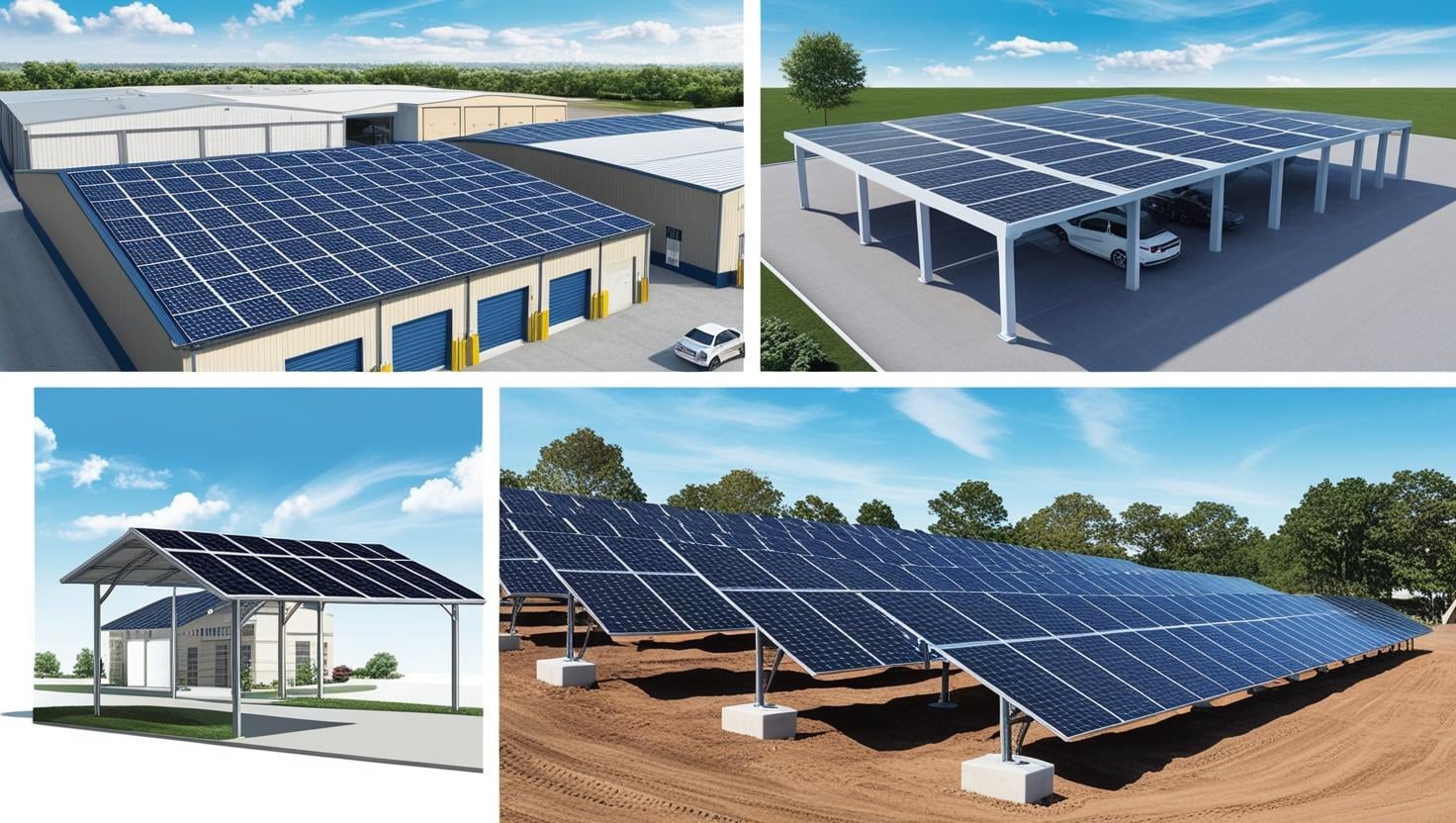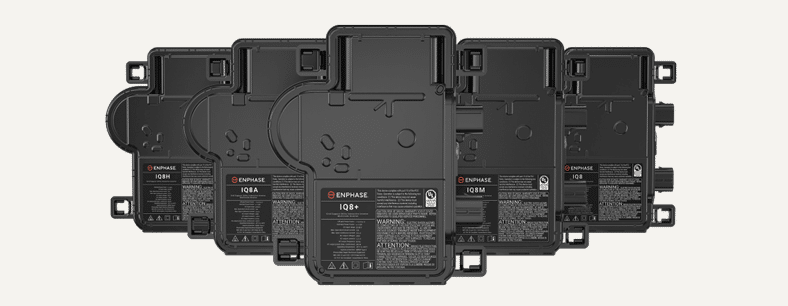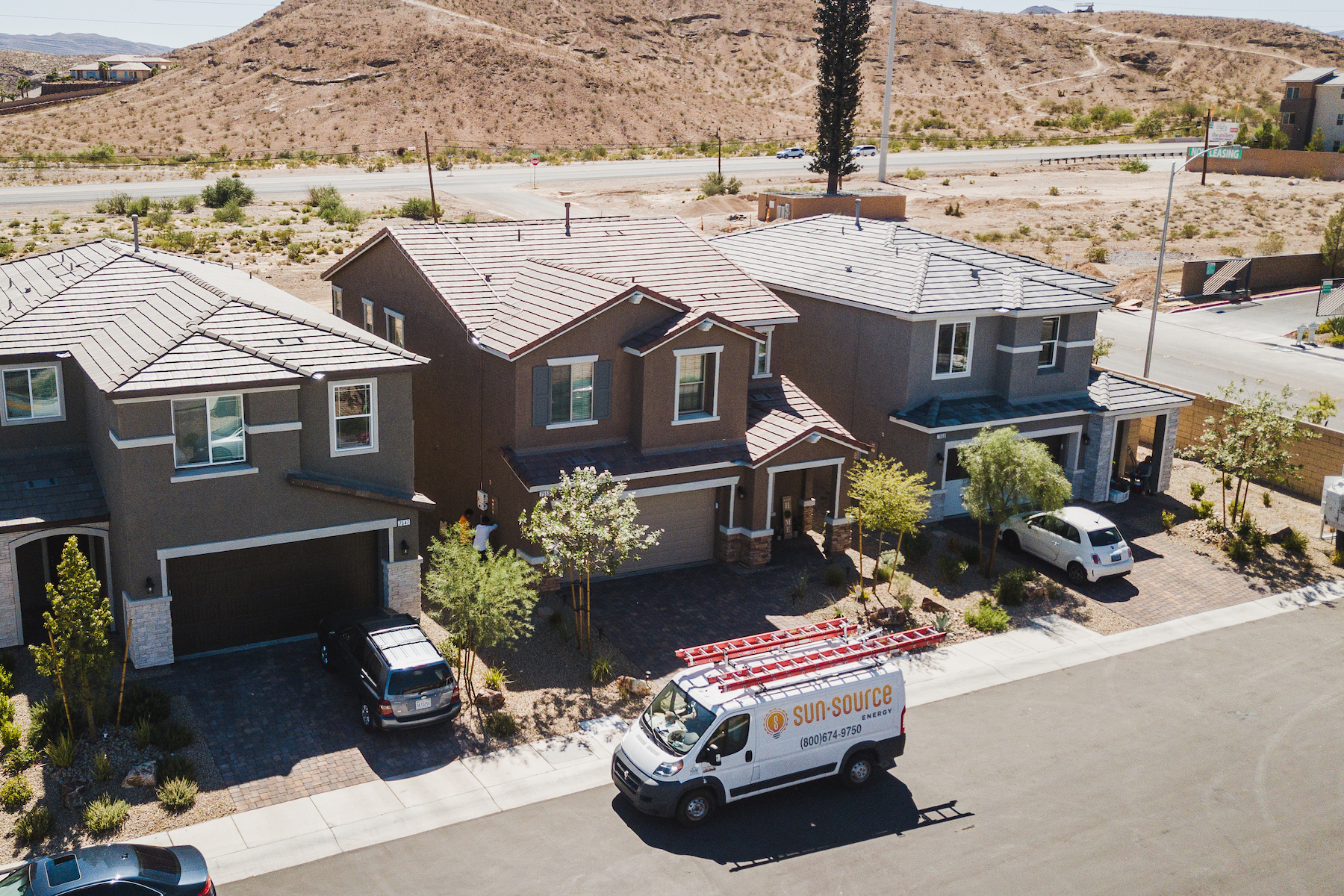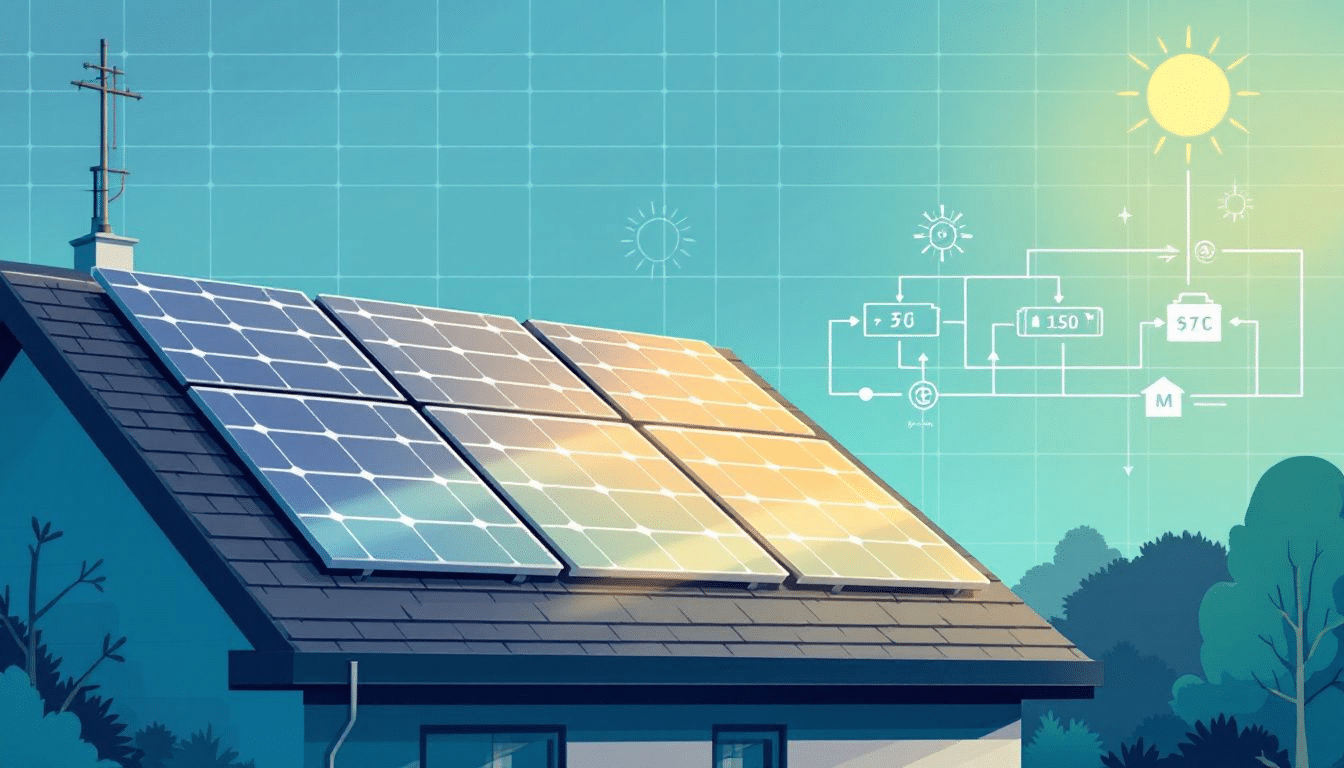Key Takeaways
- Businesses can save an estimated $101,259 in electricity costs over 20 years by investing in solar energy, allowing for reinvestment into growth opportunities.
- Solar power offers financial stability by protecting enterprises from rising energy prices and providing long-term savings through tax incentives and net metering options.
- With low maintenance and high reliability, solar energy systems are a practical solution that enhances corporate sustainability and positions businesses as leaders in environmental stewardship.
Harnessing the power of the sun isn’t just a futuristic dream—it’s a practical, cost-effective reality for businesses today. Solar energy systems offer a sustainable way to produce electricity, reducing reliance on traditional power sources and contributing to a greener future. As the world shifts towards renewable energy, investing in solar projects can set your company apart as a leader in sustainability and innovation.
Installing solar panels enables businesses to significantly cut their operating costs and avoid rising electricity prices. The investment in solar technology is not just an environmental statement but a strategic financial decision. Solar energy systems are designed to last for decades, providing long-term savings and stability.
This post explores the top reasons your enterprise should consider solar energy solutions, including financial incentives and practical benefits.
Top Benefits of Enterprise Solar for Your Business

When we decided to install solar panels for our enterprise, the financial benefits were immediately clear. Businesses can save an estimated $101,259 in electricity costs over 20 years. That’s a significant reduction in overhead, allowing us to reinvest those savings into other areas of our operations. With solar power, we’ve managed to stabilize our energy costs and shield ourselves from the unpredictability of fluctuating electricity prices.
The scale of commercial solar systems is impressive, often reaching several megawatts to meet higher energy demands. This scalability means that whether you’re a small business or a large enterprise, there’s a solar solution that fits your needs. Solar energy effectively heats, cools, and illuminates commercial spaces, adding to the versatility of these systems.
Moreover, many businesses utilize financing options like solar loans or power purchase agreements to install solar systems without upfront costs. This flexibility makes solar technology accessible to a wide range of enterprises, promoting energy efficiency and sustainable energy practices. The financial and environmental benefits make it clear why so many businesses are turning to solar power.
Lower Operating Costs with Enterprise Solar

One of the most compelling reasons to transition to solar energy is the substantial reduction in operating costs. Businesses installing solar panels can save an estimated $101,259 in electricity costs over 20 years. This significant cost saving allows enterprises to allocate resources more efficiently and invest in other growth opportunities. Solar energy systems are a powerful tool for enhancing energy efficiency, as they can effectively heat, cool, and illuminate commercial spaces.
Additionally, solar installations help stabilize energy costs, providing a buffer against fluctuating electricity prices. With predictable energy expenses, businesses can plan their budgets more accurately and avoid unexpected spikes in electric bills.
The adoption of clean energy through solar power not only reduces costs but also supports broader sustainability goals, making it a win-win for enterprises.
Tax Incentives and Financial Benefits
The financial benefits of solar energy extend beyond just savings on electricity bills. The Federal Investment Tax Credit (ITC) allows businesses to claim a 30% tax credit on solar installation costs, significantly lowering the upfront investment. This incentive makes solar projects more accessible and financially viable for enterprises. Additionally, the Production Tax Credit (PTC) provides tax benefits based on the amount of electricity generated by solar systems during the first 10 years of operation.
Net metering is another financial advantage, allowing businesses to receive credits for excess electricity generated by their solar systems. These credits can offset future electricity costs, further enhancing the financial benefits of solar energy.
Eligible expenses for the ITC include equipment costs, installation fees, and certain indirect costs associated with solar projects. Unused tax credits can be carried back three years and forward for up to 22 years, ensuring that businesses can fully benefit from these incentives.
Protect Against Rising Electricity Prices

In an era of unpredictable energy markets, solar power offers a stable and reliable solution for businesses. By installing solar panels, enterprises can protect themselves against rising electricity prices and market volatility. This stability allows for more predictable energy costs, which is crucial for long-term financial planning. Solar energy enables businesses to become self-sufficient or semi-sufficient, avoiding billing spikes and inflation associated with traditional electricity sources.
Rooftop solar installations are particularly popular among enterprises because they utilize existing structures, making them a practical and efficient solution for harnessing solar energy. Generating their own clean energy helps businesses avoid future price increases and maintain a more predictable and manageable energy budget.
Low Maintenance and High Reliability
One of the great advantages of solar energy systems is their low maintenance requirements. Once solar panels are installed, they need minimal upkeep, allowing business owners to focus on other priorities. Regular rainstorms typically clean the panels, and only areas with significant dust may require occasional cleaning. This low maintenance aspect makes solar energy systems an affordable and hassle-free investment for enterprises.
Moreover, well-engineered solar systems offer complete reliability due to their lack of moving parts. This high reliability ensures that businesses can depend on their solar energy systems for consistent performance over time. The combination of low maintenance and high reliability makes solar energy an attractive option for enterprises looking to invest in sustainable and efficient energy solutions.
Enhance Corporate Sustainability and Reputation
Investing in solar energy can significantly enhance a company’s image and reputation. Demonstrating a commitment to corporate social responsibility helps businesses attract eco-conscious clients and improve community engagement. Embracing solar power aligns enterprises with consumer preferences for sustainability, making them more appealing to a growing segment of environmentally aware customers.
Utilizing solar energy also contributes to environmental stewardship by decreasing greenhouse gas emissions. This transition supports global climate change mitigation efforts and positions businesses as leaders in the fight against climate change. Additionally, the adoption of solar technology can inspire others within the community to pursue sustainable practices, further amplifying the positive impact.
Energy Independence and Security
Converting to solar power allows businesses to achieve energy independence from commercial energy sources. This self-sufficiency reduces or removes dependency on local power companies, giving enterprises greater control over their energy supply. Reducing vulnerability to external energy supply disruptions enhances overall energy security for businesses using solar energy.
Solar energy can also mitigate risks associated with power shortages and grid failures, ensuring reliable energy supply even during outages. This aspect is particularly valuable for power-sensitive industries that require uninterrupted electricity. Integrating a battery system for backup power further enhances the reliability of solar energy systems for businesses.
Customizable Solar Solutions for Enterprises
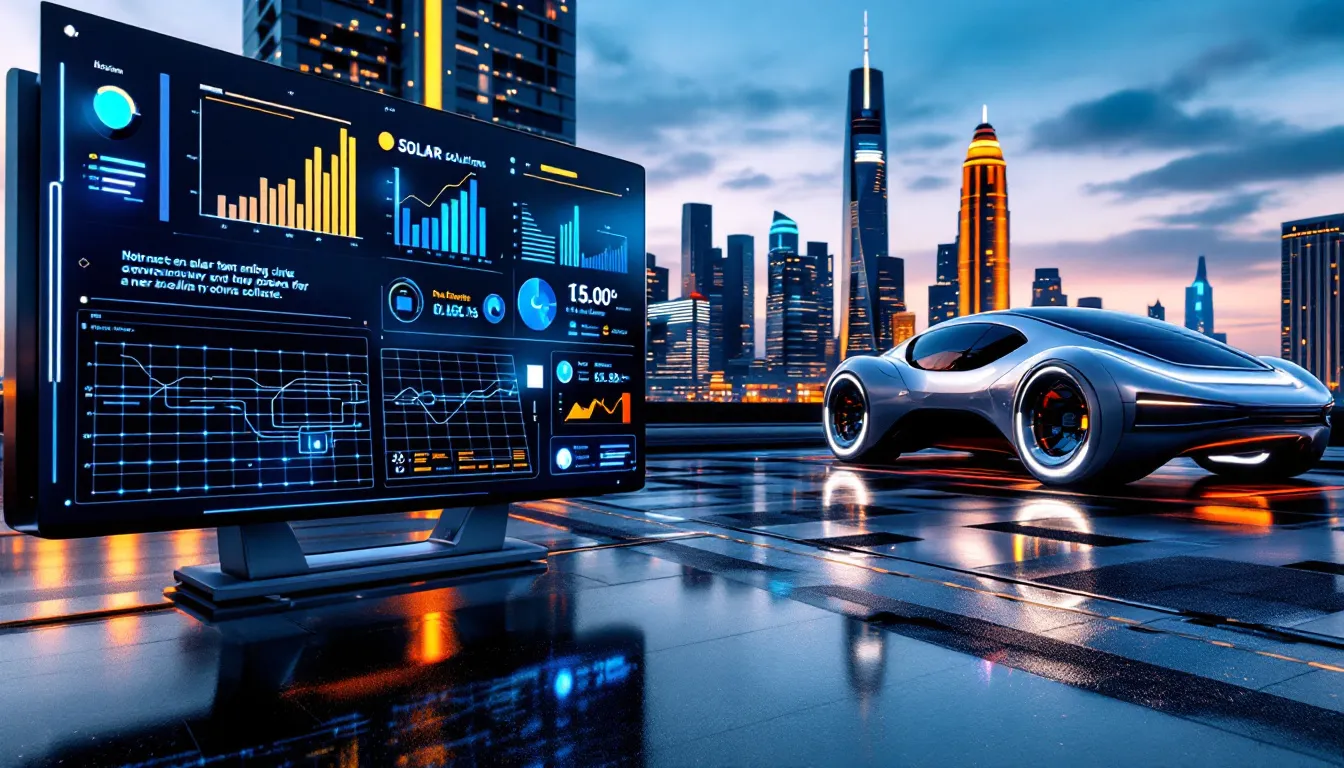
One of the most appealing aspects of solar energy is the variety of customizable solutions available for enterprises. Depending on the specific needs and space availability, businesses can choose from rooftop installations, ground-mounted systems, and solar carports.
Each of these options offers unique benefits and can be tailored to fit the energy requirements and physical constraints of different enterprises.
Rooftop Solar Installations
Rooftop solar installations provide enterprises with valuable opportunities to utilize unused roof space for energy generation. This is the most common type of installation for solar panels in enterprises, as it takes advantage of the existing building infrastructure. Successful rooftop solar projects require adequate sun exposure and strong roof support to withstand the solar panel infrastructure.
Maximizing the available roof area helps businesses generate significant clean energy, reducing reliance on traditional power sources and lowering electricity costs. Rooftop solar installations are a practical and efficient solution for enterprises looking to harness the power of the sun.
Ground-Mounted Solar Systems
Ground-mounted solar systems offer a flexible and scalable alternative to rooftop installations. These systems are ideal for enterprises with ample land space, as they allow for greater adaptability and expansion of solar panel deployment. However, the need for land space can be a limiting factor for some businesses, making it essential to consider the available area during the planning phase.
Factors such as module efficiency and site topography influence the space required for ground-mounted solar installations. Typically, commercial solar installations require 5 to 8 acres per megawatt of solar capacity. Despite the space requirements, ground-mounted systems are highly adjustable, allowing enterprises to scale their energy production as needed.
Solar Carports
Solar carports offer the dual benefits of generating renewable energy and providing shelter for vehicles. These installations can transform underutilized parking areas into energy-producing assets, making efficient use of available space. Installing solar panels on carports allows businesses to protect vehicles from the elements while generating clean energy.
Strategically placing solar carports in parking lots allows enterprises to enhance their energy efficiency and reduce their carbon footprint. Solar carports are a versatile and practical solution for businesses looking to maximize their energy production while providing additional benefits to their operations.
Addressing Common Concerns About Enterprise Solar
While the benefits of solar energy are clear, some common concerns may arise when considering solar projects for your business. These concerns include the upfront cost, space requirements, and the performance of solar systems in different climates.
Addressing these issues helps provide a comprehensive understanding of why solar energy is a viable and advantageous investment for enterprises.
Upfront Cost and ROI
The upfront cost of installing solar panels can be a significant consideration for businesses. For example, a 100 kW solar system costs around $238,600 before incentives, which reduces to $114,147 after incentives. Although the initial investment may seem high, the potential for long-term savings often justifies the cost. Many commercial solar systems have a payback period of just a few years.
Once the solar energy system pays for itself, it generates pure savings, with businesses expected to save around $101,259 in electricity costs over 20 years. Additionally, net metering allows enterprises to receive credits for excess electricity generated, further enhancing the financial benefits.
Space Requirements
Adequate space and sunlight are critical factors for the effective installation of solar panels. Businesses must plan for the space required to avoid disrupting their operations. Ideally, enterprises should remain in the same location for several years after installation to maximize the return on their investment.
Proper planning ensures that the solar panel systems are installed in a way that maximizes sunlight exposure and energy generation. By addressing space requirements early in the planning phase, businesses can ensure a smooth and efficient solar installation process.
Performance in Different Climates
Solar energy systems are versatile and can provide reliable energy across different climates. Even in snowy and cloudy areas, solar panels can thrive and generate significant amounts of electricity. Ideal conditions include lots of sunshine, south-facing panels, and minimal shading to maximize energy generation.
Understanding the performance of solar systems in various weather conditions helps businesses make informed decisions about their solar investments. By considering the local climate, enterprises can optimize their solar installations for maximum efficiency and reliability.
Innovative Solar Technologies for Enterprises
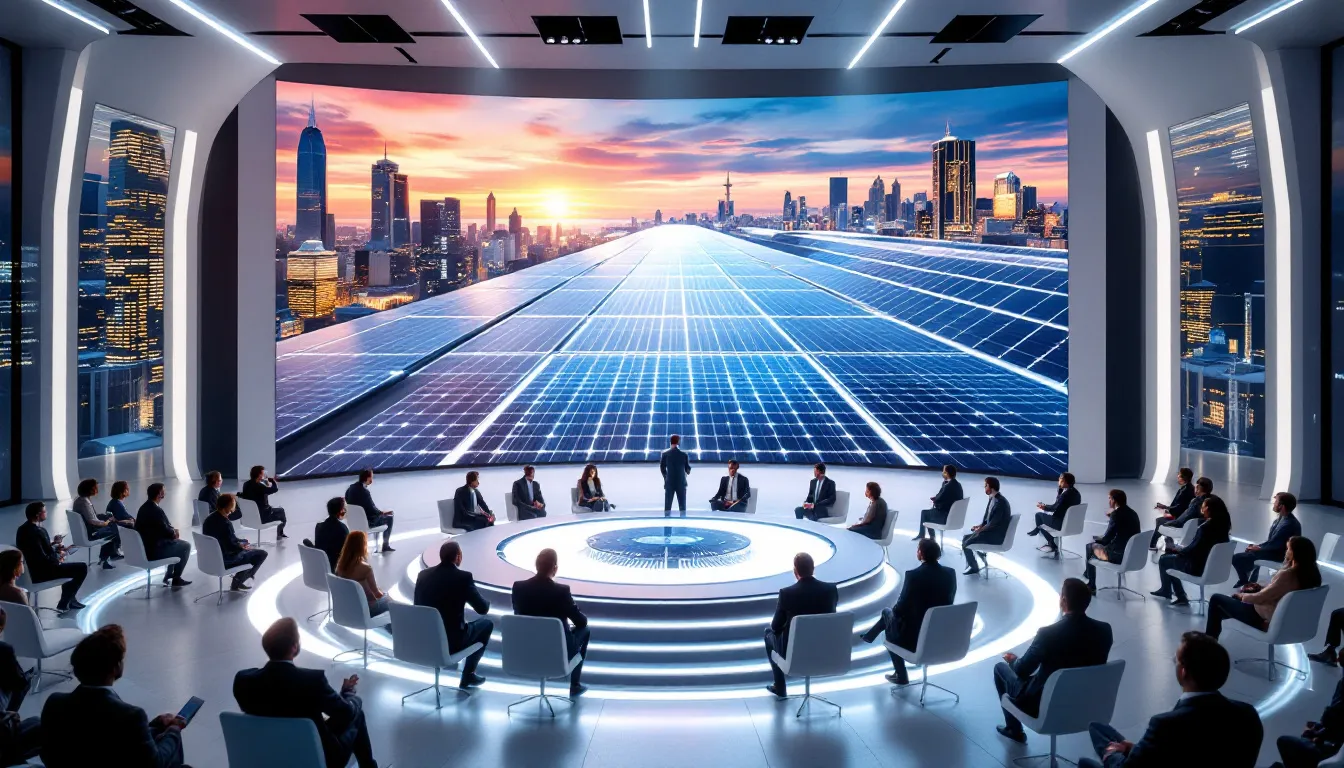
The field of solar technology is continuously evolving, introducing innovative solutions that enhance energy efficiency and accessibility. Hairy solar panels, for instance, incorporate nanotechnology to absorb up to 96% of sunlight, offering greater efficiency and flexibility compared to traditional panels. Wasted-light solar panels aim to absorb non-visible wavelengths, such as infrared light, allowing for energy generation even at night.
Other advancements include thin-film solar panels, which are lightweight and flexible, making them easy to manufacture and transport. Floating solar farms conserve land space by installing solar panels on water surfaces, which can significantly enhance energy production in urban areas.
Space-based solar technologies could harvest solar energy in space and transmit it back to Earth, providing an immense power source for cities.
Should Your Enterprise Invest in Solar Energy in 2025?
With electricity prices on the rise and the increasing push toward sustainability, investing in solar energy in 2025 is a strategic move for any enterprise. Installing solar panels can lead to significant cost recovery within two to three years, thanks to the financial incentives and the ability to stabilize energy costs. A solar array can offer up to 20 years of defense against escalating electricity prices and unexpected price hikes.
Solar systems have a lifespan of 25 to 30 years, providing ongoing savings and reducing overhead costs for businesses. While solar energy may not be ideal for every business, its numerous benefits, including low maintenance, substantial savings, and a reduced carbon footprint, make it a compelling choice for many enterprises.
For businesses planning on moving soon, it might be wise to hold off until they are settled to maximize the investment.
Summary
In summary, the adoption of solar energy systems offers a myriad of benefits for enterprises. From significant cost savings and financial incentives to protection against rising electricity prices and enhanced corporate sustainability, solar power is a smart investment for businesses looking to future-proof their operations. The customizable solutions available, such as rooftop installations, ground-mounted systems, and solar carports, ensure that there is a solar option for every enterprise’s unique needs.
By investing in solar energy, businesses can achieve energy independence, reduce their carbon footprint, and enhance their corporate reputation. The long-term financial and environmental benefits make solar energy a viable and advantageous choice for many enterprises.
As we move into 2025, the question isn’t if your enterprise should invest in solar energy, but how soon you can start reaping the rewards of this sustainable energy solution.
Frequently Asked Questions
What are the estimated cost savings for businesses that install solar panels?
Installing solar panels can lead to significant savings—around $101,259 in electricity costs over 20 years. Embrace this green investment and watch your expenses shrink while promoting sustainability!
What financial incentives are available for businesses that invest in solar energy?
Businesses investing in solar energy can significantly reduce costs through the Federal Investment Tax Credit (ITC), which offers a 30% tax credit on installation, and the Production Tax Credit (PTC), providing tax benefits for generated electricity. Seize these opportunities to boost your bottom line while supporting sustainable energy!
How do solar energy systems perform in different climates?
Solar energy systems perform exceptionally well in diverse climates, including snowy and cloudy regions, demonstrating their versatility and reliability. No matter where you live, solar energy can be a powerful solution for your energy needs!
What is the payback period for a enterprise solar energy system?
The payback period for an enterprise solar energy system is typically just a few years, making it a smart investment that leads to significant long-term savings!
What are the maintenance requirements for solar energy systems?
Solar energy systems need minimal maintenance; typically, natural rain cleans the panels, but occasional cleaning may be necessary in dusty areas. Embrace this sustainable energy solution and enjoy the benefits with very little upkeep!


